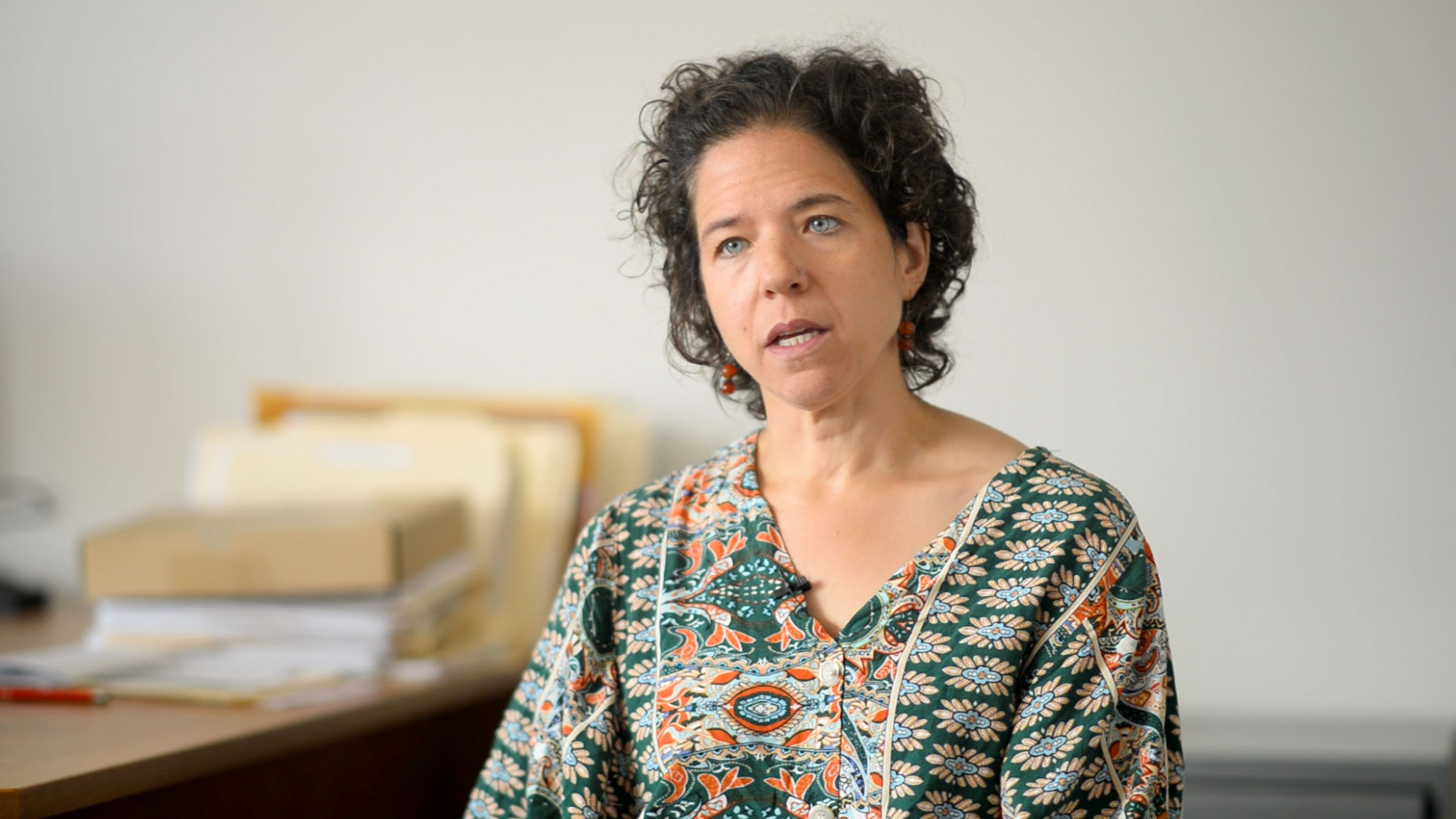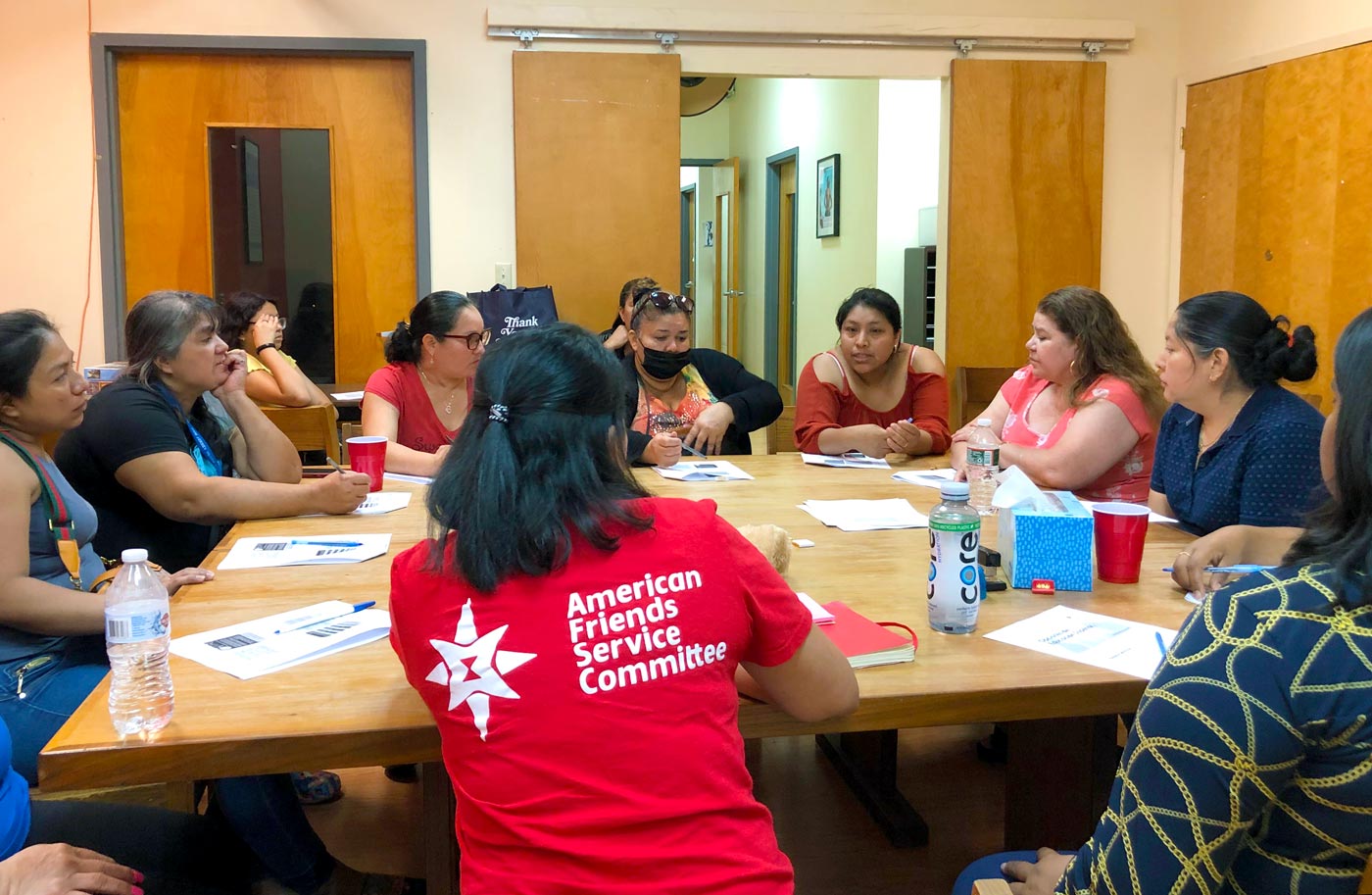
Alexandra Gonçalves Peña, New Jersey legal director, describes what it's like representing immigrants in detention under the Trump administration. Nathaniel Doubleday/AFSC
For decades, AFSC has provided free legal representation to immigrants in New Jersey, now handling over 2,000 cases each year.
Since the start of the Trump administration, we’ve seen a huge increase in arrests and detention. People who have lived in New Jersey for years are being arrested at routine ICE check-ins. Two of my clients were arrested right in front of me when they went to an interview with ICE. Both women were transferred to a detention center in Louisiana without warning. This made it much harder for us to talk with them and for their families to stay in touch.
The Trump administration’s plan is clear: make immigrants so scared that they give up their legal cases entirely. AFSC is responding by adapting our approach. We’re helping clients and families prepare for possible arrests, building rapid response networks, and working around the clock to get people released from detention. With the two women I represent, we had made emergency plans with their families ahead of time, which helped us act fast. We were able to get court hearings and get them released within two weeks. Today, they are safe at home with their families. But their struggle for permanent protection in the U.S. continues.
The need for free legal counsel for immigrants is huge. Last year, AFSC and partner organizations in New Jersey could only help 42% of those detained in the state. At the same time, research has shown that immigrants with lawyers are 10.5 times more likely to win their cases.* And with more detention centers opening in the state, we know many more of our community members will be locked up and need representation.
But that doesn’t mean we’ll ever give up. I tell our legal team: Do what you can. Yes, we'll lose some cases, but we’re also going to win. We’re going to save lives. We’re going to keep families together. Even helping one person makes a difference for years to come. It means one person gets to stay with their family, to help our communities, to make this a more compassionate society.
We’re building a network of care that will outlast any administration.
